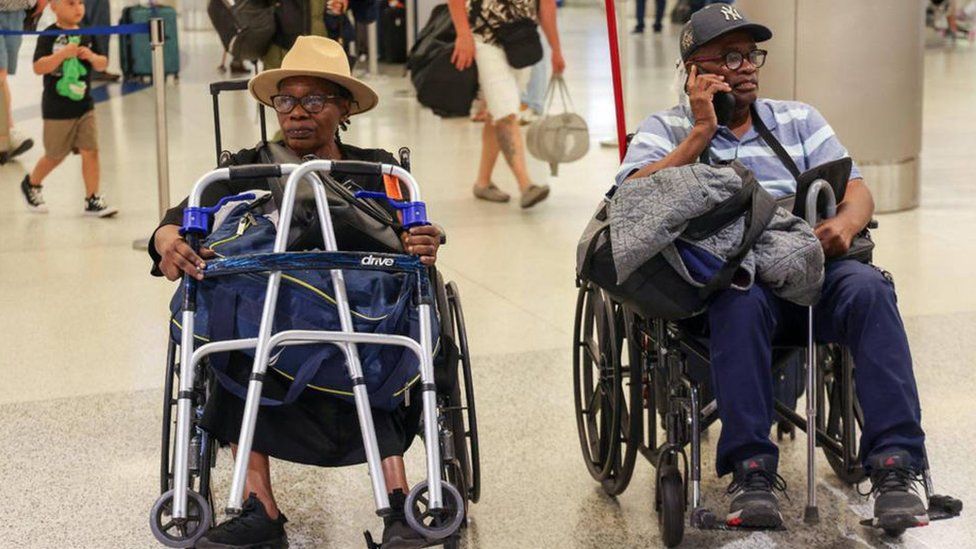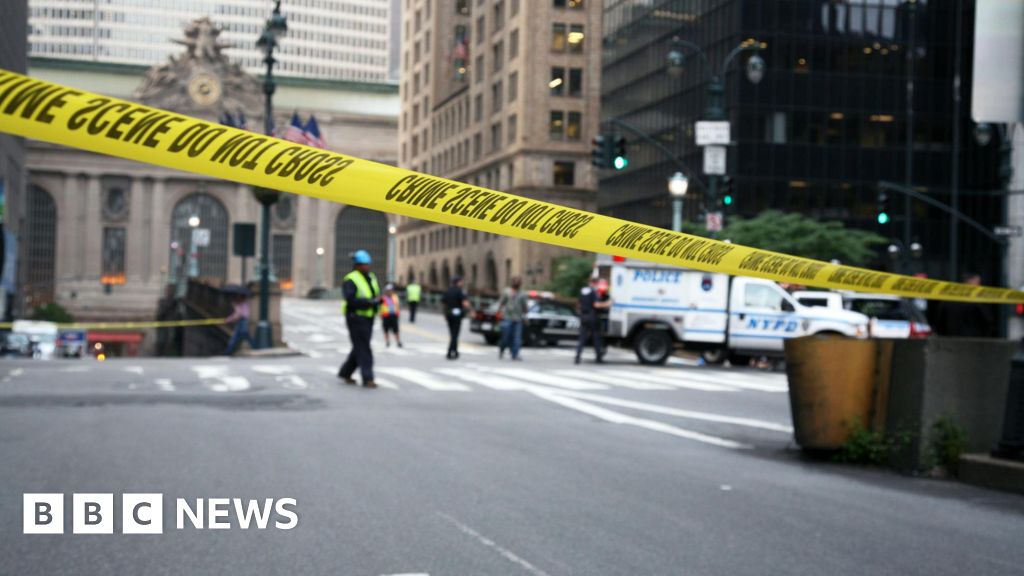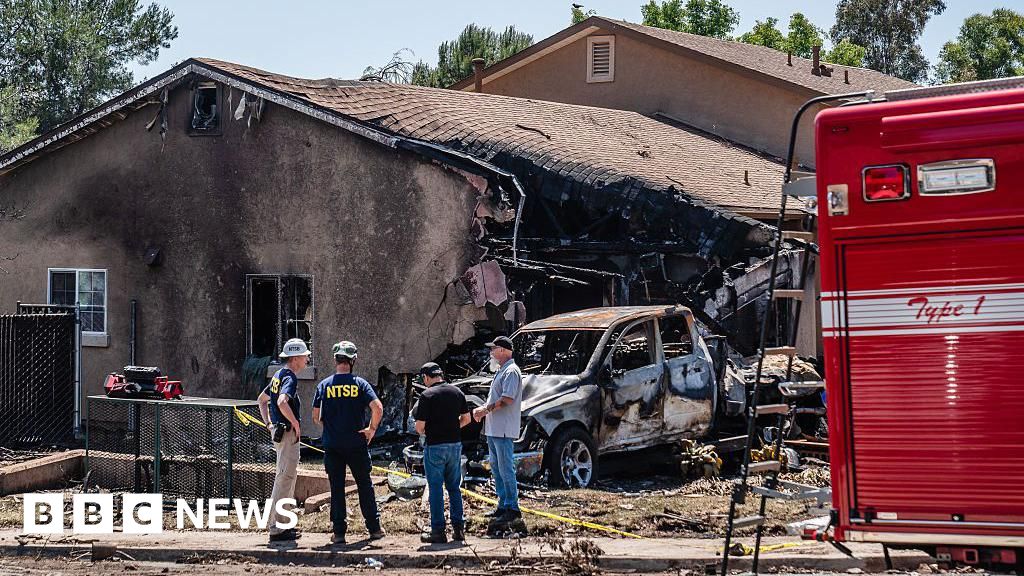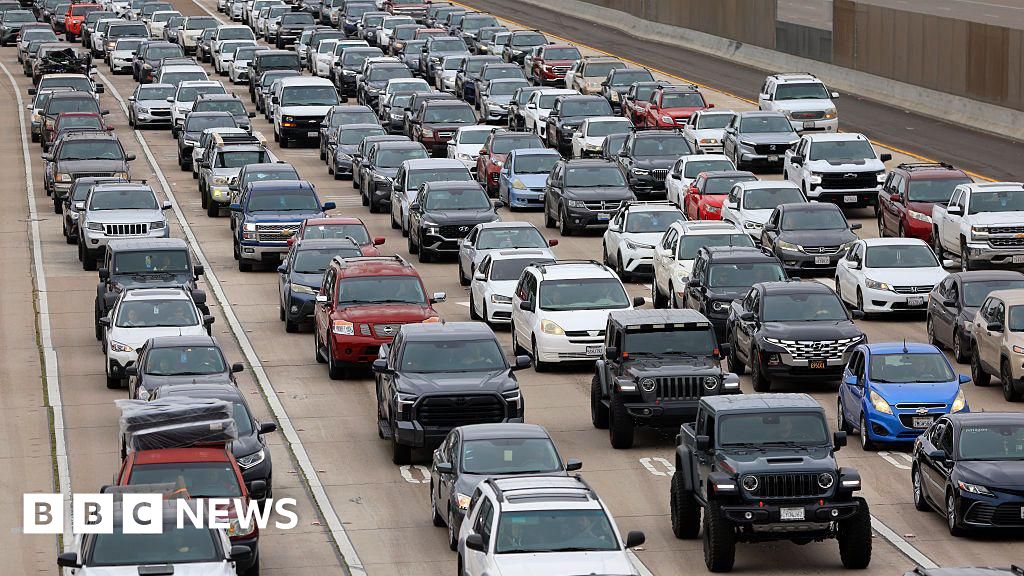ARTICLE AD BOX
 Image source, Getty Images
Image source, Getty Images
More than 40 people were on the first US-bound evacuation flight from Cap-Haitien.
By Bernd Debusmann Jr
BBC News, Washington
Dozens of US citizens fled the chaos and violence of Haiti this weekend, arriving on a government-chartered plane in Miami on Sunday.
The flight came a week after Washington airlifted non-essential staff from the capital, Port-au-Prince, parts of which have been overrun by gangs.
The State Department is working to help other Americans leave, as gunfire and threats of starvation rock Haiti.
Aid groups have warned that millions of Haitians face acute food shortages.
The first flight, which took off from the city of Cap Haitien on the island's north coast, touched down in Miami with 47 people aboard, according to CBS News, the BBC's US partner.
Earlier this month, the US had warned its citizens to leave Haiti "as soon as possible" as the violence escalated.
Passenger, Abson Louis, told CBS that he was in Haiti on business when the airport closed.
"We felt like we had no no one fighting on our behalf, but finally got an email saying we got a flight," he said. "I'm feeling great."
Boston resident Avlot Quessa had "mixed emotions" getting off the plane, telling CBS: "It's good to be back here, but I also need to think about the people back home".
Passengers were asked to sign promissory notes that they would pay for the flight at a later date. It is unclear when the next flight will take place.
While the airport in Cap-Haitien has opened periodically, the State Department has warned US citizens that the 120 mile (193km) trip from Port-au-Prince is "dangerous" and that it cannot provide transportation.
The US is examining other options for departures from the capital, according to CBS, and US citizens still in the country who wish to be evacuated have been urged to contact the State Department.
In Florida, home to a large Haitian community, Haitians told local media they wished the US would do more to help and they wanted US lawmakers to take action.
"The more that we can put light on this the sooner that we can see stability come back to the region," Jean Perpillant Jr, the president of the Orlando-based Greater Haitian American Chamber of Commerce told local news outlet WESH.
In an interview with CBS, UNICEF Executive Director Catherine Russell compared the situation in Haiti to the film Mad Max, which depicts a chaotic post-apocalyptic future.
"Many, many people there are suffering from serious hunger and malnutrition and we're not able to get enough aid to them," she said. "Somehow, we need to get more control over that situation so that we can get the humanitarian response in."
Watch: How is the world responding to Haiti unrest?

 1 year ago
70
1 year ago
70








 English (US) ·
English (US) ·